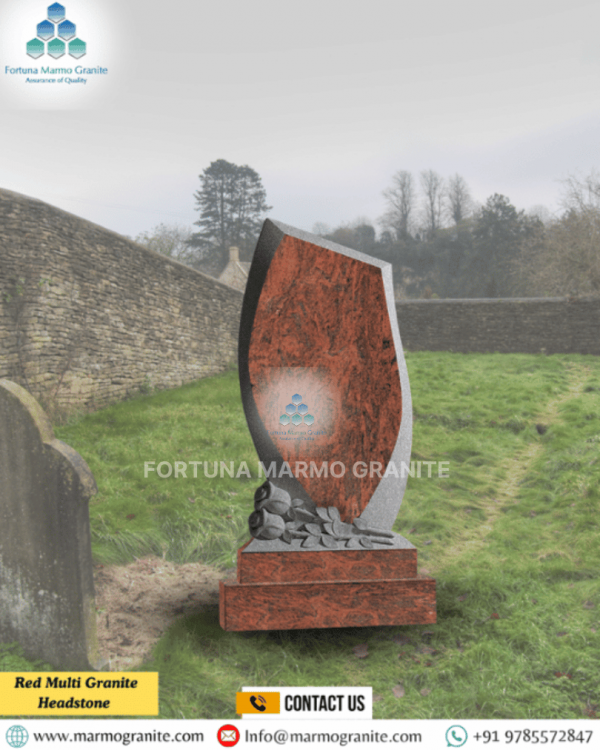Granite Memorial Stone Maintenance: Best Practices for Lasting Beauty
Granite Memorial Stone Maintenance Granite memorials are not merely architectural elements—they are vessels of memory, emotion, and legacy. They symbolize eternal love, respect, and reverence for those who have passed. Yet, These memorials offer a sense of closeness to the departed while standing resilient against time's relentless march. The strength of granite, formed through intense geological processes over millions of years, makes it uniquely suited to carry such emotional weight. Its polished surface and rich natural grain lend elegance and serenity while reflecting the dignity of the life being honored.
Moreover, Despite its durability, granite is not completely immune to environmental factors. In addition, Exposure to rain, sun, pollution, moss, and fluctuating temperatures can gradually erode its luster. Moisture may settle into microcracks, and biological growth can affect its surface over time. Regular care is essential to maintain its beauty and strength. Gentle washing, using pH-neutral cleaners, avoiding abrasive tools, and periodic professional inspections can significantly extend its lifespan.
Essential Tools and Materials for Safe Cleaning
What to Use:
- Soft-Bristled Brush: Additionally, A nylon brush, an old toothbrush, or a soft car washing brush is ideal for gently scrubbing. Avoid wire brushes or anything abrasive.
- Clean, Soft Cloths/Sponges: Microfiber cloths are excellent for wiping and polishing.
- Bucket(s): For fresh water and your cleaning solution.
- Mild, pH-Neutral Cleaner: Moreover, This is paramount. Look for cleaners specifically designed for natural stone, or simply use plain water. A very diluted dish soap (like Dawn) can be used for tough grime, but ensure it's pH-neutral and rinsed thoroughly.
- Distilled Water (Optional but Recommended): Yet, Especially in areas with hard water, distilled water can prevent mineral spots.
- Safety Gloves: To protect your hands.
What to Avoid (ABSOLUTELY!):
- Acidic Cleaners: Additionally, Vinegar, lemon juice, toilet bowl cleaners, rust removers – these will etch granite, dulling its polish and creating permanent damage.
- Alkaline Cleaners: Ammonia, bleach, strong degreasers – these can also damage the stone and strip sealants.
- Abrasive Cleaners: Moreover, Scouring powders, steel wool, abrasive pads – these will scratch the polished surface.
- Pressure Washers: While tempting for speed, pressure washers can force water into micro-fissures, potentially dislodging the stone or causing internal damage, especially to older memorials. They can also damage the surrounding foundation or landscaping.
- Wire Brushes/Metal Scrapers: Will leave indelible scratches.
Step-by-Step Cleaning Process: Gentle and Effective
- Initial Rinse and Debris Removal:
- Gently rinse the entire stone with plain water using a hose or a bucket. This helps to loosen surface dirt and remove loose debris like leaves, twigs, and cobwebs.
- Carefully pick off any larger pieces of debris.
- Prepare Your Cleaning Solution:
- For most routine cleaning, plain water is sufficient.
- For more stubborn dirt, mix a few drops of pH-neutral dish soap (like Dawn) into a bucket of distilled or clean water. The solution should be barely sudsy.
- Gentle Scrubbing:
- Dip your soft-bristled brush or sponge into the cleaning solution.
- Starting from the top of the memorial, gently scrub the surface in small, circular motions. Pay extra attention to any areas with visible dirt, grime, or biological growth.
- For stubborn areas of algae or moss, you can let the cleaning solution sit for a few minutes to loosen the growth before scrubbing.
- Work your way down the memorial, ensuring you cover all surfaces.
- Thorough Rinsing:
- This is a critical step. Rinse the stone thoroughly with clean water to remove all traces of the cleaning solution and dislodged dirt. Any residue left behind can attract more dirt or cause streaking.
- Rinse from the top down, allowing the water to carry away impurities.
Tackling Specific Stains and Problems
- Algae, Moss, and Lichen: For persistent biological growth, a dedicated biological cleaner formulated for natural stone can be effective. Alternatively, a paste made from hydrogen peroxide (3% solution, found in pharmacies) and absorbent material (like flour or paper towels) can be applied. Apply the paste, cover it with plastic wrap to keep it moist, and leave it for several hours or overnight before gently scrubbing and rinsing. Always test in an inconspicuous area first.
- Rust Stains: These are tricky and require a poultice specifically designed for rust removal from natural stone. These poultices contain chelating agents that draw the rust out of the stone. Never use off-the-shelf rust removers designed for metal, as they contain harsh acids. Consult a professional if you're unsure.
- Mineral Deposits/Hard Water Stains: A diluted solution of rubbing alcohol (one part alcohol to one part water) can sometimes help, followed by thorough rinsing. For more stubborn stains, a specialized poultice for mineral deposits may be needed. Again, test carefully.
- Paint or Graffiti: This is a job for a professional. Attempting to remove these yourself with harsh solvents will likely cause more damage to the granite.
Sealing Granite: Is It Necessary?
This is a common question, and the answer is nuanced. High-quality, polished granite used for memorial stones is inherently very dense and has low porosity. This means it's naturally resistant to staining. Most new granite memorials are not sealed at the time of installation.
However, if you have an older memorial, or if the granite has a honed (matte) finish rather than a polished one, sealing might be considered. A good quality impregnating sealer designed for natural stone will penetrate the surface and repel oil and water, offering an extra layer of protection against stains.
Key considerations for sealing:
- Type of Granite: Darker, denser granites often don't benefit much from sealing. Lighter, more porous granites might.
- Finish: Honed granite is more absorbent and may benefit from sealing more than polished granite.
- Environment: If the memorial is in an area prone to spills (e.g., near food vendors, high traffic), sealing might offer peace of mind.
- Professional Application: Sealing is best done by a professional to ensure proper application and avoid streaks or residue.
Long-Term Preservation: Beyond Cleaning
- Regular Inspections: Moreover, Periodically check the memorial for any cracks, chips, or signs of instability. Early detection allows for timely intervention.
- Landscape Management: In addition, Keep trees and bushes trimmed away from the memorial to prevent falling debris, excessive shade (which promotes biological growth), and root intrusion.
- Avoid Wax and Oil-Based Products: These can attract dirt, create a sticky film, and may even discolor the stone over time.
- Discourage Vandalism: Yet, While beyond direct control, keeping the memorial well-maintained and cared for can deter casual vandalism.
- Professional Consultation: Consequently, For significant damage, deep stains, or concerns about structural integrity, always consult with a reputable memorial mason or stone restoration professional. They have the expertise, tools, and specialized knowledge to handle complex issues without causing further harm.
Conclusion
In conclusion, the preservation of granite memorial stones is not just about maintaining their physical appearance—it is also about upholding the memories and legacies they represent. Granite, known for its exceptional durability and timeless elegance, remains one of the most revered choices for memorials and headstones. In addition, However, even the strongest natural materials require regular attention to retain their beauty and symbolic value. Best practices such as routine gentle cleaning using non-abrasive tools, avoiding acidic or harsh chemical cleaners, periodic sealing to protect against moisture and staining, and conducting annual inspections to detect early signs of wear or damage are essential to ensure these stones endure for decades without losing their luster or integrity. Moreover, understanding the impact of weather, environmental pollutants, and biological growth like moss or lichen can help caretakers implement preventive measures before the stone suffers any irreversible damage.
Indian Granite Supplier At Fortuna Marmo Granite, we go beyond merely being a supplier—we serve as a lifelong partner in preserving what matters most. As a premier granite manufacturer and exporter from India, we combine high-quality craftsmanship with deep expertise in stone care. Granite Memorial Stone Maintenance, Moreover, We offer not only premium-grade granite for memorial stones but also tailored guidance and aftercare support to help our clients maintain the brilliance of each monument they create. Granite Memorial Stone Maintenance, Yet, With a reputation built on trust, knowledge, and an unwavering commitment to quality, Fortuna Marmo Granite stands beside families, memorial parks, and institutions across the globe, helping them protect and honor the enduring legacy of those commemorated in stone.



